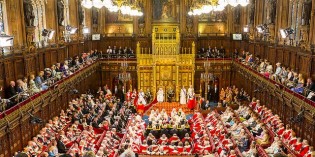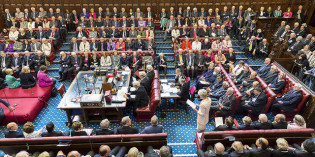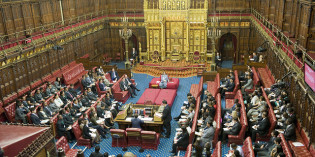Parliament

By abandoning ideology for short term pragmatism both left and right are trivialising important constitutional questions
Although Tax Credit changes were accepted in the House of Commons, the failure of the Lords to approve this motion has created some interesting paradoxes. Sagar S Deva and Christopher Kirkland write that rather than suggesting politically-motivated and short-termist changes to affect the passage of legislation, a longer term appreciation of proposed changes is required […]

The prospect of greater regional and city devolution raises the spectre of the “Manchester Withington Question”
The Government’s plans for a “Northern Powerhouse” and the associated moves towards greater policy autonomy for Greater Manchester are combining to create a potential situation where MPs in Manchester and areas which may also in future enjoy similar powers can vote on matters which don’t effect their constituents. This, argue Andy Mycock and Arianna Giovannini represents […]

Fewer and older: Consequences of the decline in party membership in the UK
Recent years have seen an increase in membership of some of the smaller parties but this has not compensated for the overall decline in party membership across the UK. Andrew Defty considers the implications of this, from the reduced revenues to the key role played by party activists. Similar PostsEuro elections – previewing the election in […]

Failure to take into account existing institutions risks jeopardising the success of new reforms
Oliver D. Meza argues that greater attention needs to be given to existing institutional frameworks when planning reforms. Using Mexico as a case study, he highlights how attempts to improve local democracy through electoral reform have failed because the old institutional hierarchies have not been taken into account. Although well-meaning, the reforms have made decision-making costlier, less expeditious […]

Labour must make an electoral reform pact to win in 2020
Nat le Roux argues that a one-off electoral reform pact between Labour and some or all of the minor parties in 2020, with a common manifesto commitment to introduce a new voting system, would likely result in a broad-left coalition government. Otherwise Labour may spend a generation in opposition. Similar PostsGeneral election 2019: a postcode […]

For the first time a Conservative government is experiencing repeated defeats in the Lords
In the aftermath of the Lords defeats on tax credit cuts there has been much talk of a ‘constitutional crisis’. In this post Meg Russell argues that whilst last Monday’s vote was certainly unusual, the most significant change is the wider political context: that it is a Conservative government on the receiving end of repeated defeats in the Lords. Much like […]

Once again the Constitution seems vulnerable to piecemeal reform arising out of sectional party interest
On Monday the House of Lords voted against changes to tax credits. In doing so, Osborne and Cameron have argued they have broken a constitutional convention, raising “issues that need to be dealt with”. But Sean Swan questions these claims by highlighting that neither the Parliament Act nor the Salisbury Doctrine has been breached as […]

The impact of academia on Parliament: 45 percent of Parliament-focused impact case studies were from social sciences
How does academic research feed into the parliamentary process? Analysing the impact case studies of the 2014 REF, Caroline Kenny draws out potential lessons on how Parliament is currently engaging with academics, and how it might in the future. Impact case studies referring to Parliament were found in all four of the main subject panels, […]

The Conservatives will not ‘suspend’ the House of Lords, but neither will they reform it
The government’s plans to cut tax credits might just be threatened with a ‘fatal motion’ in the House of Lords today. Unnamed ministers have threatened peers in turn with suspension. Richard Reid explains how the Lords can get involved in statutory instruments. He argues that this is another case where peers must walk a fine line between being neither […]



 Democratic Audit's core funding is provided by the Joseph Rowntree Charitable Trust. Additional funding is provided by the London School of Economics.
Democratic Audit's core funding is provided by the Joseph Rowntree Charitable Trust. Additional funding is provided by the London School of Economics.